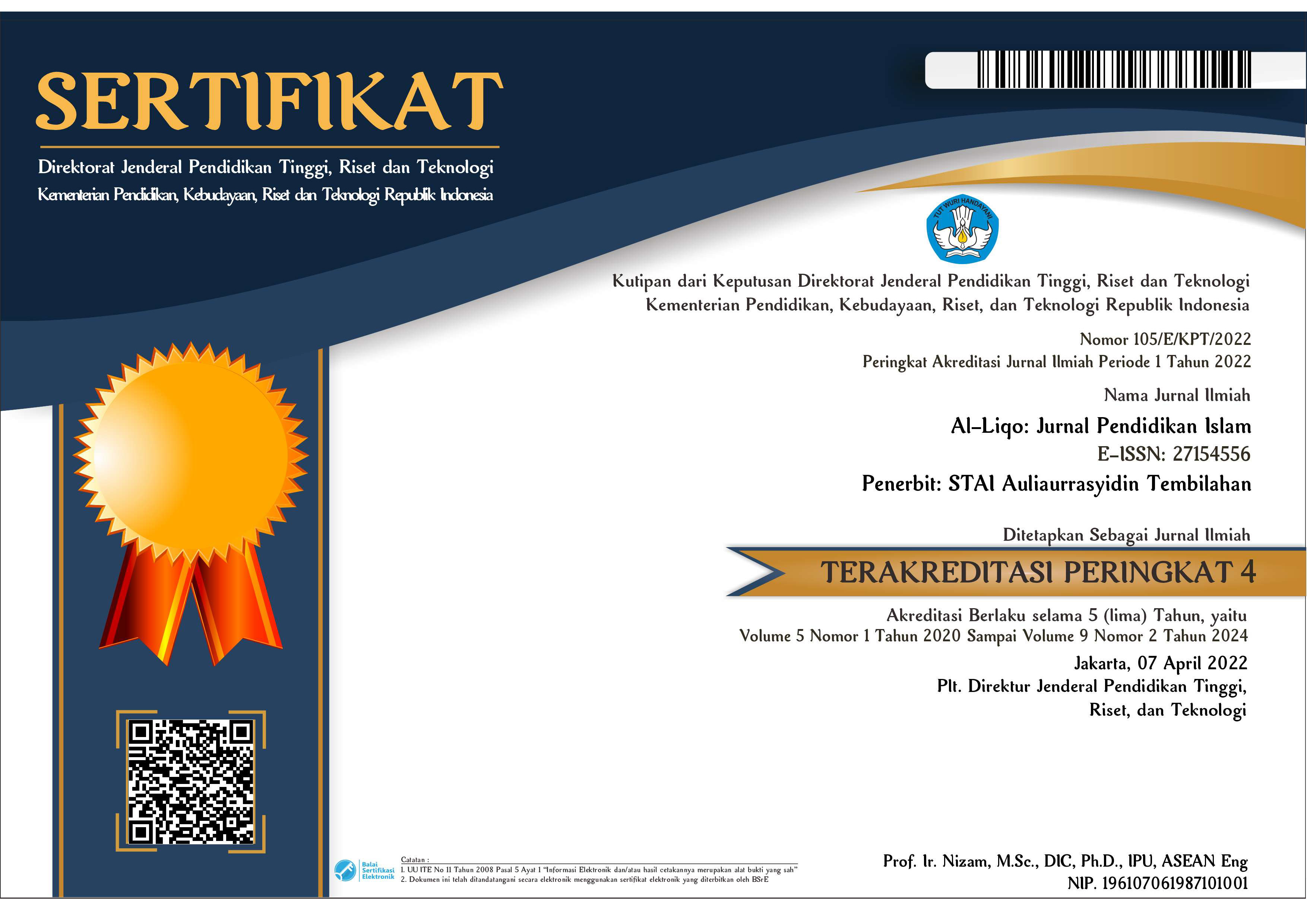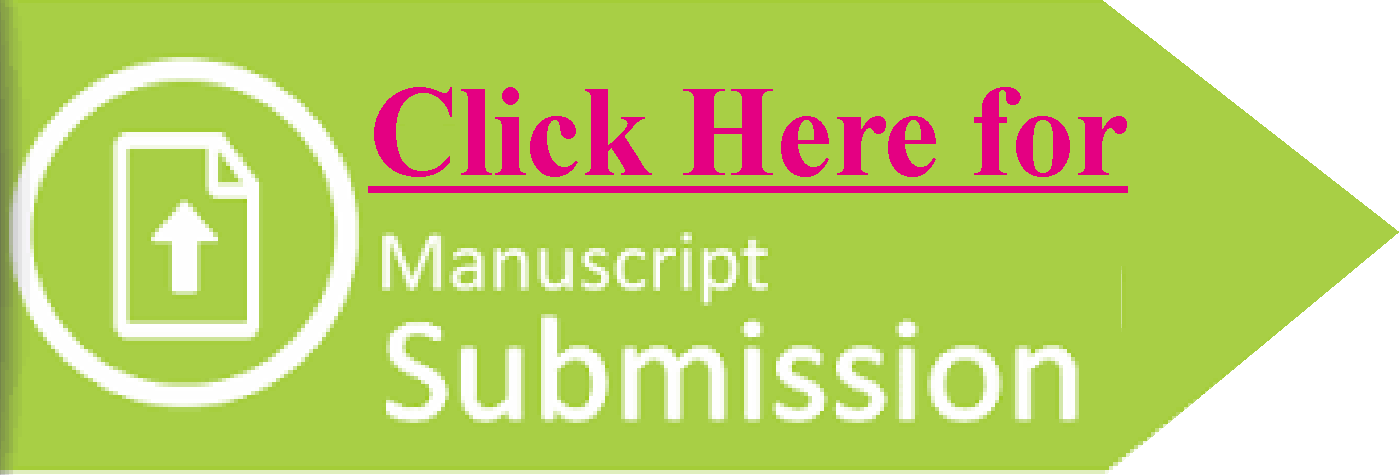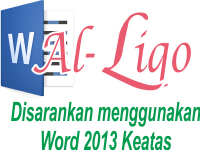Pendekatan Individual dalam Perkembangan Anak Didik
DOI:
https://doi.org/10.46963/alliqo.v6i2.399Keywords:
Individual Approach, Child DevelopmentAbstract
In the learning process, the teacher must be able to organize every learning activity and respect students as subjects who have talents and abilities. As a consequence of this, the learning process must also be developed through individual learning activities in order to obtain maximum learning outcomes. However, in the implementation there are still students who do not dare to ask the teacher when they find difficulties in doing assignments, there are students who have never been guided by the teacher in doing assignments, there are teachers who do not guide students in learning, there are students whose learning outcomes do not reach the KKM. even though they have received guidance from the teacher, and there are students whose learning outcomes reach the KKM even though they do not receive guidance from the teacher during the learning process. For this reason, the author intends to carry out research on the effect of the individual approach on student learning outcomes at the 018 Gemilang Jaya State Elementary School, Batang Tuaka District. The purpose of this study was to determine the implementation of the individual approach, student learning outcomes and the effect of individual approaches on student learning outcomes at the 018 Gemilang Jaya State Elementary School, Batang Tuaka District. This study uses a qualitative descriptive method. The instruments used are interviews, and observations.
Downloads
References
Anas Sudijono. (2008). Pengantar Statistik Pendidikan, Jakarta: PT. Raja Grafindo Persada.
Dimyati dan Mudjiono. (2002). Belajar dan Pembelajaran, Jakarta: Rineke Cipta.
E. Mulyasa. (2009). Kurikulum yang disempurnakan, Bandung: PT. Remaja Rosdakarya.
Iskandar. (2009). Metodologi Penelitian Pendidikan dan Sosial [Kuantitatif dan Kualitatif], Jakarta: Gaung Persada Press.
J. Mursell dan S. Nasution. (2006). Mengajar dengan Sukses, Jakarta: Bumi Aksara.
Kamisa. (2000). Kamus Besar Bahas Indonesia, Surabaya: Kartika.
Oemar Hamalik. (2009). Proses Belajar Mengajar, Jakarta: Bumi Aksara.
Riduwan. (2005). Belajar Mudah untuk Guru-Karyawan dan Peneliti Pemula, Bandung: Alfabeta.
Riduwan. (2004). Metode dan Teknik Penyusunan Tesis. Jakarta: Alfabeta.
Sardiman A. M. (2002). Interaksi dan Motivasi Belajar Mengajar, Jakarta: PT. Raja Grafindo Persada.
Sugiyono. (2004). Metode Penelitian Bisnis, Bandung: Alfabeta.
Suharsimi Arikunto. (2010). Prosedur Penelitian Suatu Pendekatan Praktek, Jakarta: Rineka Cipta.
Sunarto dan Ny. B. Agung Hartono. (2006). Perkembangan Peserta Didik, Jakarta: PT. Rineka Cipta.
Syaiful Bahri Djamarah dan Aswan Zain. (2006). Strategi Belajar Mengajar, Jakarta: PT. Rineka Cipta
Syaiful Bahri Djamarah. (2005). Guru dan Anak Didik dalam Interaksi Edukatif (suatu pendekatan teoritis psikologis), Jakarta: Rineka Cipta.
Syamsu Yusuf dan A. Juntika Nurihsan. (2008). Landasan Bimbingan dan Konseling, Bandung: PT. Remaja Rosdakarya.
S. Margono, 2004, Metode penelitian Pendidikan, Jakarta: PT. Rineka Cipta.
Thursan Hakim. (2005). Belajar secara Efektif. Jakarta: Puspa Swara.
Tim Prima Pena. (2005). Kamus Besar Bahasa Indonesia, Jakarta: Gitamedia Press.
http://biellyherdian.blogspot.com/2009/07/hakekat-pembelajaran-pendekatan.html diakses tanggal 13 April 2013.
http://techonly13.wordpress.com/2009/07/04/pengertian-hasil-belajar/ 14 Maret 2010.
Downloads
Published
Issue
Section
License
Authors who publish with this journal agree to the following terms:
1. Copyright on any article is retained by the author(s).
2. The author grants the journal, right of first publication with the work simultaneously licensed under a Creative Commons Attribution shareAlike 4.0 International License that allows others to share the work with an acknowledgment of the work’s authorship and initial publication in this journal.
3. Authors are able to enter into separate, additional contractual arrangements for the non-exclusive distribution of the journal’s published version of the work (e.g., post it to an institutional repository or publish it in a book), with an acknowledgment of its initial publication in this journal.
4. Authors are permitted and encouraged to post their work online (e.g., in institutional repositories or on their website) prior to and during the submission process, as it can lead to productive exchanges, as well as earlier and greater citation of published work.
5. The article and any associated published material is distributed under the Creative Commons Attribution-ShareAlike 4.0 International License







2.png)



